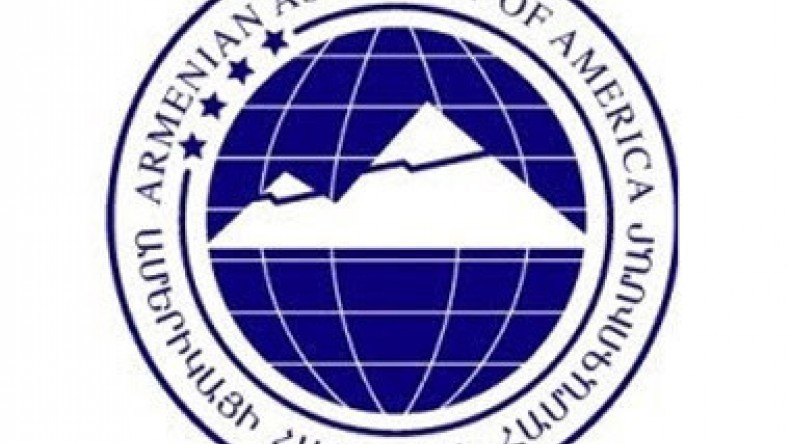
Assembly releases ten-page report on Sumgait pogrom and targeting of Armenian Christians
In a letter to President Obama, the Armenian Assembly of America (Assembly) expressed its deep concern over Azerbaijan's attempt to subvert the Administration's well-intentioned program to create greater access for the American public to the White House through the "We the People" website. The site invites citizens to post a petition and is intended to give all Americans a way to engage their government on the issues that matter to them.
However, the Azeri government manipulated the process by generating anonymous signatures from non-Americans emanating from Azerbaijan and Turkey. The Assembly's letter urged the removal of "these harmful propaganda-based petitions" and to "safeguard against foreign manipulation."
The Assembly cited multiple news sources establishing the fraudulent nature of the petition drives, including evidence that the Azeri government and Foreign Ministry were directly involved with these petitions.
One story from Azeri media quotes the Director of the U.S.-Azeri Network as putting out a call to all Turks around the world to sign the petitions.
"Such actions raise questions as to the appropriateness of a foreign government exploiting a site designed for American citizens," adds the Assembly" and raised questions as to "whether or not the provisions of the Foreign Agents Registration Act (FARA) have been complied with."
In addition, the Azerbaijan America Alliance announced this week that it has hired former Congressman Dan Burton of Indiana as chairman of its board. While in Congress, Burton routinely opposed U.S. affirmation of the Armenian Genocide citing opposition from Turkey. He also voted against Section 907 of the Freedom Support Act. Enacted in 1992, Section 907 restricts U.S. assistance to Azerbaijan until it takes "demonstrable steps to cease all blockades and other offensive uses of force against Armenia and Nagorno-Karabakh."
The Azeri government, which has been spreading a virulent disinformation campaign agitating for war by condoning the slaying of Armenians, as with the pardon of the murderer Ramil Safarov who axed to death an Armenian officer in his sleep at a NATO Partnership for Peace training exercise in Hungary, and ramping up tensions along the ceasefire line, is aiming to distract attention from the upcoming 25th anniversary of the atrocities that mark the beginning of the pogroms against Armenians in Azerbaijan and Nagorno Karabakh.
To mark the occasion of the Sumgait anniversary, the Assembly released a 10-page summary report documenting the Sumgait pogrom and subsequent attacks against the civilian Armenian population in other towns in Azerbaijan, including its capital city of Baku. The publication, Sumgait Pogrom of 1988: The Public Record, Armenian Christian Minority Targeted in Azerbaijan, may be accessed on the Assembly's website, and reads in part:
Twenty-five years ago, in the Azerbaijani town of Sumgait (Sumgayit), longtime Armenian residents were brutally targeted on the basis of their ethnicity and subjected to unspeakable crimes. According to a March 1988 article in The Economist, "reports of atrocities, including the murder and mutilation of pregnant Armenian women and newborn babies in a maternity hospital, have not been denied. Other reports speak of gangs of young Azerbaijanis hunting down Armenian families and committing murder, rape and robbery." The Azeri government never saw to the punishment of the perpetrators.
February 28, 2013, marks the 25th anniversary of the pogroms committed by the Azerbaijani authorities against its Armenian population and the beginning of the escalation of violence against the Armenian minority across the entire country of Azerbaijan and against Armenians in Nagorno Karabakh, culminating in the violent expulsion of 200,000 Armenians from the Azeri capital city of Baku in January 1990.
Despite the Azeri government's assertion that the violence was due to spontaneous riots, the pogroms in Sumgait, Kirovabad (now Ganja), Baku, and elsewhere, were a retaliatory attempt to silence and thwart the rights of the Armenians of Nagorno Karabakh who lawfully approached their government on the basis of a new openness in Soviet society ushered in by President Gorbachev's policy of glasnost and perestroika.
Instead of respecting the legal rights of Armenians, Azeri mobs targeted Armenians as a group and subjected them to gross human rights violations reminiscent of practices and policies resulting in the attempted annihilation of the Armenian population in neighboring Ottoman Turkey earlier in the century.
The Sumgait pogrom was widely reported and roundly condemned, but the violence was never contained. Increasingly anti-Armenian forces acted with impunity and the pogroms spread across Azerbaijan leading to the military campaigns of the late 1980s to 1994 to deport the Armenians of Nagorno Karabakh until a ceasefire agreement was signed by Azerbaijan, Nagorno Karabakh, and Armenia.
Hidayat Orujev, a leader of the Communist Party of Azerbaijan, days before the massacre of Armenians in Sumgait, stated in an address to the governing Council of the Nagorno Karabakh Autonomous Region: "If you do not stop campaigning for the unification of Nagorno Karabakh with Armenia, if you don't sober up, 100,000 Azeris from neighboring districts will break into your houses, torch your apartments, rape your women, and kill your children." Mr. Orujev was appointed State Advisor for Ethnic Policy by the late President Heydar Aliyev of Azerbaijan and head of Azerbaijan's State Committee for Religious Affairs by current President Ilham Aliyev.
The Sumgait pogroms are a reminder of the need to respect the ethnic and cultural identity of all people without discrimination and violence, concluded the Assembly in its report.
The text of the Assembly letter to President Obama, Secretary of State John Kerry, and Attorney General Eric Holder regarding the fraudulent petitions with links to Azeri news sources is available on the Assembly website.
Established in 1972, the Armenian Assembly of America is the largest Washington-based nationwide organization promoting public understanding and awareness of Armenian issues. The Assembly is a 501(c)(3) tax-exempt membership organization.
Newsfeed
Videos






























